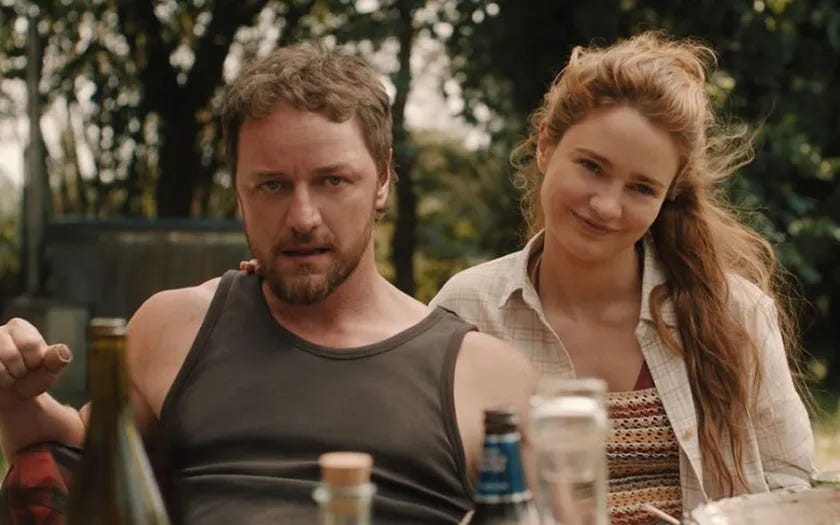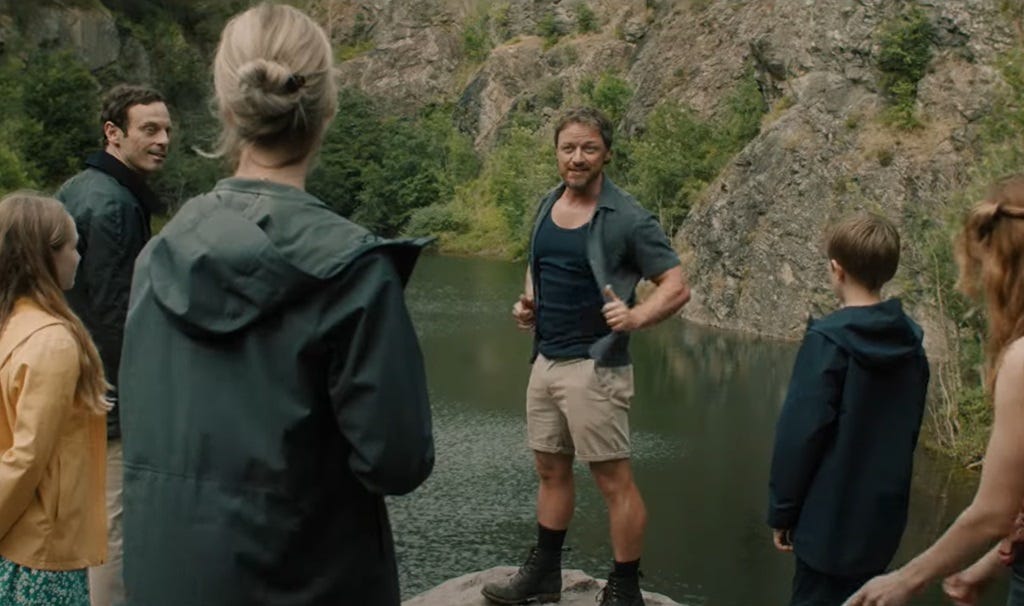Speak No Evil (2024) adds to the catalogue of cancerous horror remakes that erode the mastery of the original works
Film review
British horror director James Watkins returns to the cinema field for the first time in eight years since his last feature The Take (2016). Four years prior he directed the commercially successful remake, The Woman In Black (2012). His best work however is the outstanding Eden Lake (2008), which follows a middle-class couple being terrorised by a group of lower-class teenagers on their romantic camping weekend.
Eden Lake is truly one of the best examples of British horror cinema due to its gruelling violence and cruelty that the viewer has to suffer through. It doesn’t feel the need to reward you with a sense of relief but rather exposes you to a truly bleak horror tale that will disturb your regular sense of comfort, which is what great horror should do. The Tafdrup brothers achieved a similar effect in Speak No Evil (2022). So when it's revealed that Watkins has written and directed a remake of the Tafdrup brothers' tale that echoes the same dread that Eden Lake delivered nearly two decades ago, it sounds like it would be in safe hands. Surely?
It is rarely the case that a remake takes an interesting concept that’s previously been poorly executed with the hopes of giving the idea the delivery it truly deserves. And that’s certainly not the case with the Tafdrup brothers' original work. Speak No Evil (2022) frequently gets comparisons to Michael Haneke’s Funny Games (1997) / (2007) due to the dangers of common politeness and the suffering the audience has to endure from witnessing the character's inability to stop the horror they trapped themselves into. However, if we were to compare in terms of quality, the Tafdrup’s don’t manage to meet the same cinematic sophistication as Haneke.
But could Watkins’ Speak No Evil (2024) ever be put into the same category as Haneke’s Funny Games? Absolutely not. It can hardly be put into the same category as the work it was born from despite sharing so many similarities yet being so far distant from it. And not in a good way. It was reasonable to at least predict that Watkins would just regurgitate the same delivery as the original but open it up to a wider audience with James McAvoy starring and a hyper-westernised skin. But no, don’t be so easily seduced by the names of the creative talent being dangled in front of you. It turns out that whatever happened behind the scenes amongst the creative team, what they delivered was a pathetic, poor excuse for a remake.
Like the original, a father, mother, and young daughter bump into another couple and their somewhat mute child on holiday abroad. After appearances and company seem pleasant, they get invited to the couple’s home. Invitation accepted, they arrive after a long journey travelling to prepare themselves for a pleasant weekend with their new holiday friends. However, after various strange encounters they experience in their company, the urge to escape is disrupted by the pressure to display politeness, only for things to become much worse.
Now, albeit with a few minor inferior tweaks just for the sake of presenting itself as not a complete copy of the former work, Watkins manages to follow the original plot beat by beat through to the last quarter of the second act, even if the emotional experience never quite manages to rhyme. The major and noticeable change until the final act kicks in is the use of the children to progress the plot forward. In the original, the horror is unravelled through the perspective of the mother and father. However, Watkins lets the young daughter, Agnes discover the dark reality hiding beneath the facade through the guided revelation from the mute child, Ant.
While the perspective of the children is more prominent here, the loosening of the restriction on character perspective severely erodes any of the anxiety and tension found in the superior 2022 vision. It’s not so uneasy or frightening looking through the lens of children whose sense of security is never truly under threat due to their reliance on adult figures. Up until this point of revelation, Speak No Evil (2024) has not reflected the torturous suffering you have to endure through the Tafdrup brothers' master craft. However, a new form of torture shortly follows for the viewer due to the sharp diversion Watkins decides to take the plot onto, and by no means in an admirable fashion.
This diversion is what truly separates Watkins’ work from the Tafdrup brothers’ blueprint. So much so, that it’s a completely different film. Nowhere near the prediction of regurgitating the same vision with a different skin. Watkins does something truly awful with his vision that he manages to create a form of cinematic cancer. The bleakness and soul-destroying nature that defined the original is replaced with a commercially motivated face-off between the protagonists and antagonists in an environment that looks as if it was inspired by Sam Peckinpah’s Straw Dogs (1971) but without the edge.
Suddenly, Speak No Evil (2024) joins the same league of insulting remakes that betray the mastery of its former source material. The 2015 adaptation of Martyrs easily comes to mind. In such adaptations, true horror is not allowed to thrive as there's this perception that mass audiences can only appreciate the genre if they’re reminded that good can overcome evil in such a world. No hope is lost for the protagonists, but it may be for an audience with dignified taste.
It’s hard to not be left baffled by what Watkins presented us with. There’s no question that this guy is capable of good filmmaking due to his previous track record. However, his weak adaptation skills in the screenplay are laid bare when he incorporates moments and dialogue from the original without the needed meat on the bone to polish the delivery as coherent. There’s also no question that the actors are competent. However, Mackenzie Davis and Scoot McNairy's performances could suggest otherwise at times.
Blumhouse Productions turned an opportunity that wasn’t necessarily warranted into a waste of creative energy, radiating the sense that this was all just a quick hit job at duplicating the success of an acclaimed title that needn't have been tampered with. The only positive to take away from Speak No Evil (2024) is that there’s certainly no risk that this work can overshadow the merit of the original. It will instead leave behind a legacy of being a dire reimagining rather than one of a respected remake.
Out in UK cinemas today.



